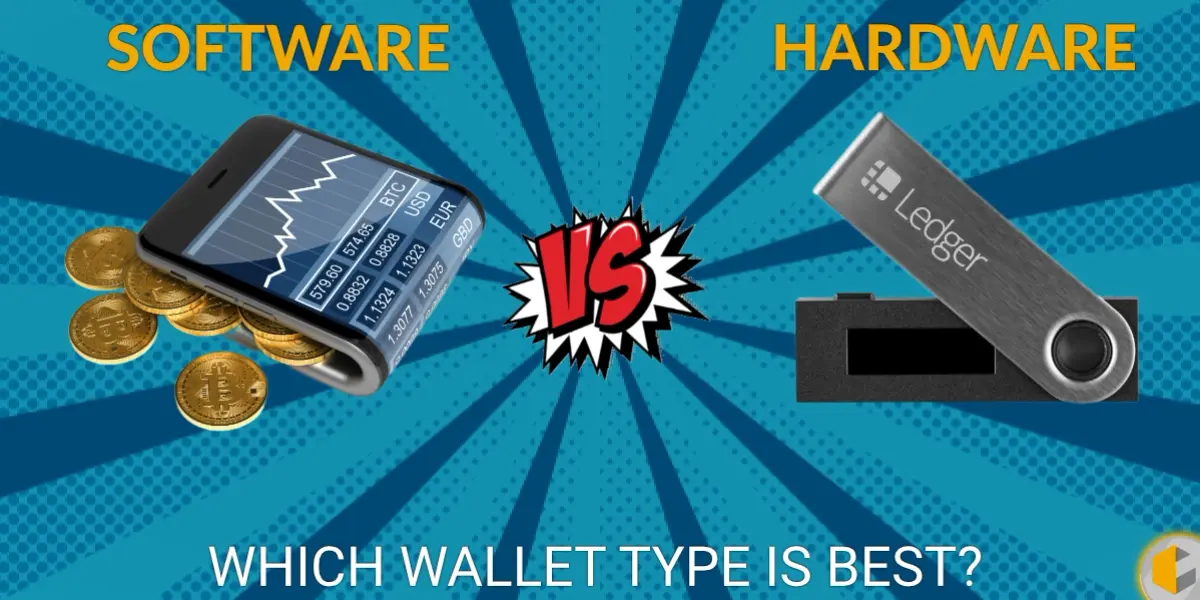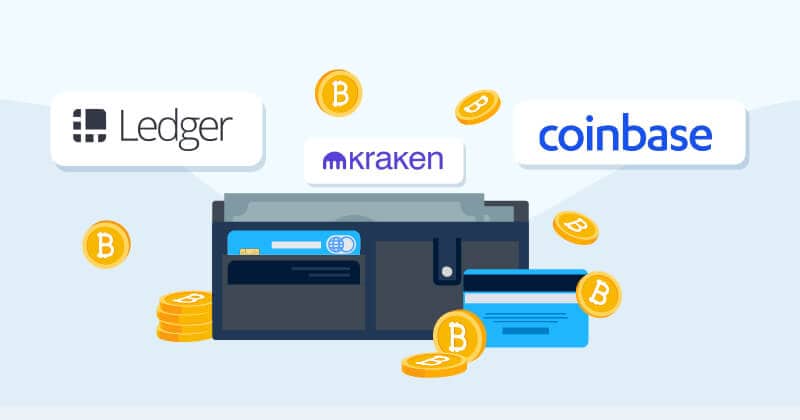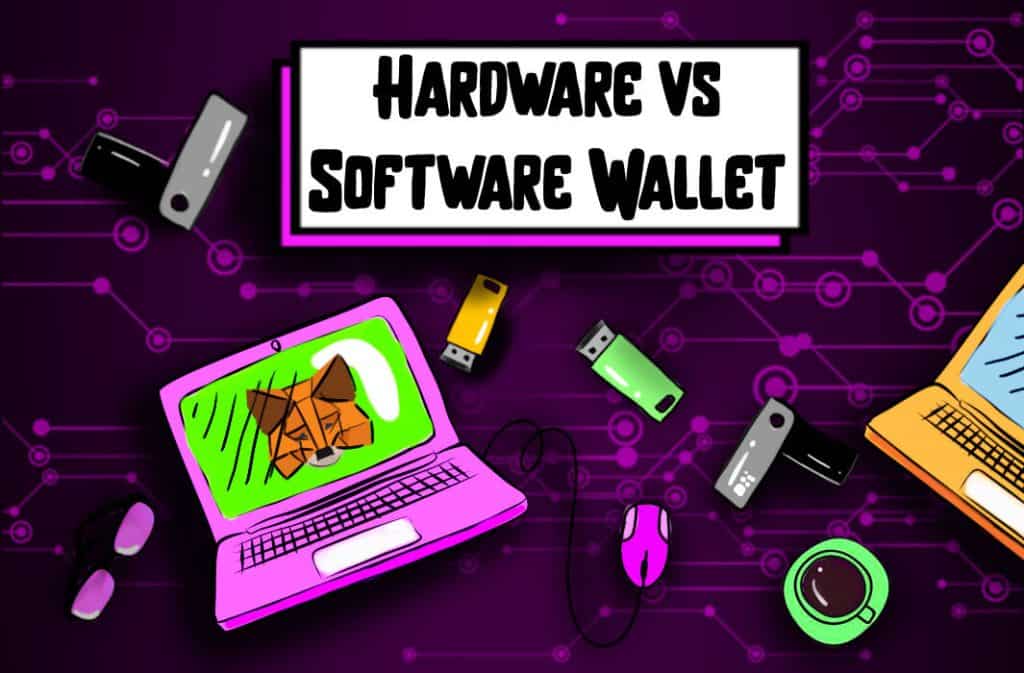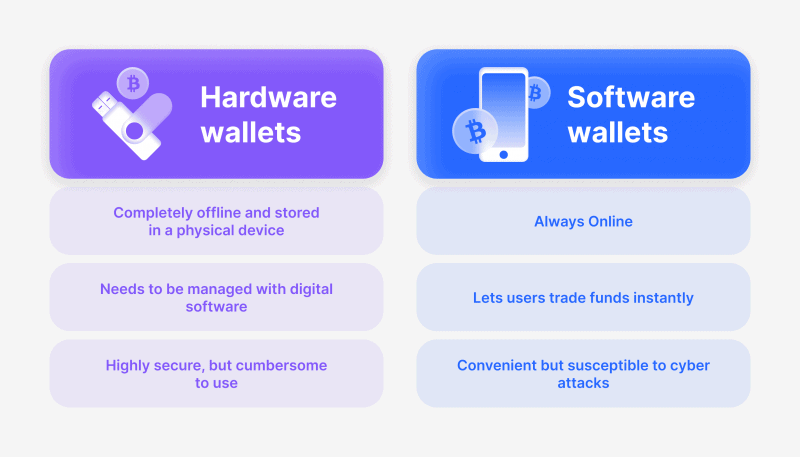In the hunt for the safest spot to keep your digital coins, you’ve likely stumbled on two guardians – hardware and software wallets. But here’s the scoop: not all wallets are built the same. Some are like vaults, tough and separate. Others are like your smart friend, quick and handy. In “Differences between hardware and software wallets: securing your digital treasure”, I’ll show you the real deal behind these digital safes. Will a hardware wallet’s armor give you peace, or will a software wallet’s swift access win the day? Stay tuned, for I am about to break down the walls between these two and guide you in picking the right shield for your precious digital loot.
Understanding the Differences between hardware and software wallets
The Technological Divide – Hardware vs. Software Wallets
When you want to keep your digital coins safe, you choose between two main wallet types. Hardware wallets are physical devices that store cryptocurrency offline. Software wallets, on the other hand, are programs that you can use on your phone or computer to manage your coins online.
Think of hardware wallets like a safe in your house. Only with the right key can you get in. They are cold storage wallets because they are offline. This makes them tough to hack. They hold your private keys, which you need to access your cryptocurrency. It’s like having your valuable treasure locked away.
Software wallets are different. They are like your wallet in your pocket, always with you. You can easily get to your digital money. But since they are hot wallets, online, they face more risks. Hackers try to break in, just like thieves try to pick your pocket. Yet, software wallets offer quick access to trade, spend, or check on your digital assets.
Evaluating Security Measures and Risks
Security is a big deal for wallet users. Hardware wallets give strong security for your private keys protection. Each time you use it, it’s just you and your device. Your secret codes stay hidden. Even when you plug the hardware wallet into a computer, your keys do not leave the device.
In software wallets, your keys are stored on your phone, tablet, or computer. This is convenient, but riskier. If malware or a virus gets in, someone could steal your keys. And without your keys, your coins could be gone forever. But, these wallets use good tricks to keep you safe. They often have two-factor authentication and sometimes multi-signature wallets. These need more than one person to say okay before sending coins.
A big worry with hardware wallets is what if you break or lose it? Well, you’re in luck. You can back it all up with a seed phrase. This is a list of words that lets you recover your coins on a new device.
Software wallets also let you back up your stuff. But, remember to keep your backup phrase secret too. If someone else finds it, they could get to your coins.
For someone looking at cost, software wallets are often free. You just download them. But hardware wallets can cost money. Think about what’s more at risk, though. If you have lots of coins, buying a hardware wallet could be a smart move.
At the end of the day, whether you choose a hardware wallet or a software wallet, you’re taking an important step in protecting your digital treasure. Each has its strengths. Each has its risks. The key is finding the balance that feels right for you.
Securing Your Digital Assets with Hardware Wallets
The Strengths of Cold Storage Solutions
Think of hardware wallets like safe boxes for your digital money. They are physical devices that store cryptocurrency offline. This means they are not hooked up to the internet. You might hear people call these ‘cold storage wallets,’ too. They make it hard for hackers to get to your online stash.
Unlike software wallets, hardware wallets keep your keys off the net. Picture this: your private key never leaves the device. That’s a big win for security! Every time you make a transaction, the hardware wallet checks it within itself. Then, you can say okay with just a button press.
Have you heard of seed phrases? They are like master keys for your wallet. With hardware wallets, you get a unique seed phrase. If you lose the wallet, this phrase helps you get your crypto back. Make sure to write it down and store it in a safe place. It’s your last line of defense.
Managing the Risk of Physical Damage and Loss
Now, let’s talk about keeping your hardware wallet safe. Remember, it’s a small device. It can get damaged, lost, or stolen. This is a different risk than what you face with software wallets. With a software wallet, your risk is mainly cyber attacks like malware or phishing.
Protecting a hardware wallet requires some thought. Think about fire or water damage. That could ruin the wallet and your chances of recovery. To avoid these troubles, some people use protective cases. Others keep them in a secure spot, like a safe.
Even though hardware wallets are strong against hacks, you must handle them with care. If you lose your wallet and don’t have the seed phrase, it can mean trouble. You could lose access to your crypto forever.
In using a hardware wallet, the key is balance. You want to be safe from digital threats and real-world damage. It costs more than software wallets, but it’s worth it for keeping a big amount of crypto safe. They say you can’t put a price on peace of mind, right?
Now, picking a hardware wallet also means you need to think about how often you move your crypto. If you trade a lot, it might be less handy than an app on your phone. But if your plan is to hold onto your crypto, hardware is a good choice.
In the end, securing your digital assets with a hardware wallet is all about control. You hold the keys, literally. It’s a strong move for anyone keen on keeping their digital treasure out of harm’s way. Just remember to deal with the real-world risks, too. Keep that wallet safe and sound!
The Convenience of Software Wallets
Accessibility and User-Friendliness at Your Fingertips
When it comes to ease and access, software wallets take the prize. On your computer or phone, software wallets make managing digital assets easier. Examples of these are hot wallets, online crypto storage, and mobile wallets. Using internet connections, these wallets provide quick access to your digital wealth. Need to validate a transaction on a Saturday at noon? No problem! The digital nature of software wallets makes them available 24/7.
Software wallets offer two valuable features: two-factor authentication and multi-signature. Two-factor authentication bolsters wallet security. It couples something you know (a password) with something you have (your phone). Multi-signature adds a different layer of protection. It requires more than one key for a transaction. Therefore, it lessens the chance of unauthorized access.
Wallet accessibility and convenience are key traits of software wallets. Keep in mind, software wallets come in different types. Hosted wallets are like banks; they hold your keys. Un-hosted wallets give you more control over your keys. It’s essential to wisely choose between these options.
Protecting Against Malware and Phishing
However, software wallets face more risks than their hardware counterparts. Security breaches in software wallets happen. Attacks, such as malware and phishing, aren’t uncommon. So, how do you protect against these risks? Encryption methods and private keys protection are crucial.
Encryption methods ensure that even if a hacker gets access to your wallet, decoding the data is not straightforward. Save your private keys in a safe spot offline. This way, even when a breach occurs, the attacker can’t access your digital loot.
Wallet recovery is equally crucial in software wallets. With the right info, you can recover a lost or breached wallet. A combination of backup phrases or seed phrases is often the answer. If you lose your wallet or it gets corrupted, these words can be used to restore it.
Overall, software wallets offer more convenience than hardware wallets. However, this convenience comes with its risks. Striking the right balance is paramount. Be wise. Protect you and your treasure. After all, it’s not just about owning digital currency. It’s about securely holding it in your hands, ready for when you need it next.
Balancing Security with Practicality
The Trade-offs Between Wallet Types
When it comes to keeping your digital coins safe, two main players come into play: hardware and software wallets. Think of them as the trusty safe versus the handy wallet in your pocket.

Hardware wallets are like personal vaults for your digital treasure. They are physical devices that store your private keys offline. This makes them very hard to hack. You might have heard terms like “cold storage” or “offline crypto storage”—that’s what hardware wallets are all about. The biggest perk? Your private keys never leave these devices, making them tough for thieves to reach.
But, hardware wallets do cost money and can get lost or broken, which can be a bit of a worry. You’ll need to keep your backup phrases—also called seed phrases—safe, so you can recover your funds if that happens.
Now, turn the spotlight to software wallets. These are apps on your computer or phone that manage your cash of the crypto world. They are part of what’s called “hot wallets” or “online crypto storage” because they need the internet to work. Advantages here are clear: they are simple to use and are often free.
Software wallets can leave you open to bad stuff like malware attacks or phishing if you’re not careful, though. Yet, they’re always improving, with things like two-factor authentication and multi-signature options adding better security layers.
So, it’s about weighing what matters to you: top-notch security with a bit more hassle and a price tag, or an easy, quick, and often free way to get going with the risk of online threats.
Best Practices for Private Keys and Backup Strategies
Keeping your private keys safe is like guarding the key to a treasure chest. You don’t want anyone else finding it! Both wallet types will have backup strategies to help you sleep at night.
For hardware wallets, write down the backup phrases they give you when you set up. Store these in a few safe places—think locked drawers or even a safety deposit box. Not just under your mattress!
Software wallets will ask you to jot down similar phrases, too. They’re just as important. Remember, if someone gets your backup phrase, they can get your digital cash. Treat it like gold!
Private keys need love and care. Never share them and use strong, unique passwords for extra safety. Remember to keep your wallet software updated to stop hackers sneaking in.
Whether it’s the sturdy hardware wallet or the handy software wallet, your job is to balance great security with practical daily use. It’s all about what fits your life and how much digital gold you’re protecting. Stay smart and stay safe!
We’ve explored key differences in wallets for your digital assets. Hardware wallets offer strong protection, often called cold storage, that keeps your info away from online threats. But, they can get damaged or lost.
Software wallets, on the other hand, give easy access and are user-friendly. You must watch out for malware and hackers though. Always keep your private keys safe and have backup plans ready.
When choosing, think about safety and ease. Both have pros and cons. Make sure you use good habits for your keys and backups no matter which you pick. That’s how you keep your digital money safe and handy. Stay smart and pick what fits your needs best.
Follow Crypto Currency Bitcoin to update more knowledge about Crypto.
Q&A :
What is the main difference between hardware and software wallets?
Hardware wallets are physical devices that securely store user’s private keys offline, providing the highest level of security against online attacks. On the other hand, software wallets are applications that can be installed on your computer or mobile device. They are connected to the internet and are not as secure as hardware wallets.
Why should I consider using a hardware wallet instead of a software wallet?
Hardware wallets offer the most secure method of storing digital assets. They are designed to protect your private keys from online and offline threats, making them less susceptible to hacking and theft. Software wallets, while convenient, are more vulnerable to these threats due to their connection to the internet.
What are the advantages of software wallets over hardware wallets?
Software wallets are often more user-friendly and can be accessed from multiple devices, making them a more convenient choice for individuals who frequently trade or use their digital assets. They also often offer more features and integrations with third-party services than hardware wallets.
Are hardware wallets immune to all kinds of attacks?
While hardware wallets provide the highest level of security due to their offline nature, they are not completely immune to all threats. For example, if someone has physical access to your wallet, they might be able to compromise it. However, additional security measures like PIN codes or passphrases are used to mitigate this risk.
Can I use both hardware and software wallets at the same time?
Yes, you can use both hardware and software wallets simultaneously. You can store your long-term holdings in a hardware wallet for optimal security and keep a smaller amount in a software wallet for day-to-day transactions. This provides a balance between security and convenience.
